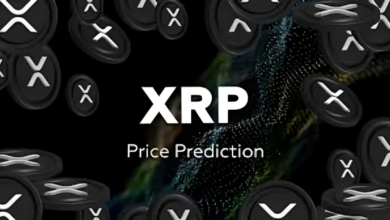XRP The Future of Cross-Border Payments and Blockchain Innovation

XRP is a digital asset and cryptocurrency developed by Ripple Labs Inc. It is designed to facilitate fast and low-cost cross-border transactions. Unlike traditional cryptocurrencies such as Bitcoin and Ethereum, XRP focuses on enabling seamless international payments while reducing transaction fees and processing times.
What is XRP?
XRP serves as both a cryptocurrency and a payment protocol. It operates on the XRP Ledger, a decentralized blockchain network that allows users to transfer assets securely. XRP acts as a bridge currency, ensuring liquidity in financial transactions across various fiat currencies and cryptocurrencies.
Key Features of XRP
- Speed: XRP transactions settle in 3-5 seconds, making it one of the fastest cryptocurrencies.
- Low Cost: Transaction fees are minimal, typically around 0.00001 XRP.
- Scalability: The XRP Ledger can handle up to 1,500 transactions per second (TPS).
- Decentralization: XRP Ledger is maintained by independent validator nodes worldwide.
- Sustainability: Unlike Bitcoin, XRP does not rely on mining, reducing its energy consumption significantly.
How XRP Works
Unlike proof-of-work (PoW) cryptocurrencies, XRP uses a consensus protocol called the Ripple Protocol Consensus Algorithm (RPCA). Validator nodes reach consensus every few seconds to confirm transactions, making XRP more efficient than PoW-based cryptocurrencies like Bitcoin.
The Role of XRP in Cross-Border Payments
One of XRP’s primary use cases is international remittances and payments. Financial institutions and payment service providers leverage XRP to process cross-border transactions more efficiently through Ripple’s On-Demand Liquidity (ODL) service.
- Reduced Costs: Eliminates the need for pre-funded nostro accounts.
- Instant Settlements: Transactions are processed in seconds instead of days.
- Enhanced Liquidity: Provides liquidity in corridors with limited fiat currency availability.
XRP vs. Bitcoin and Ethereum
| Feature | XRP | Bitcoin | Ethereum |
|---|---|---|---|
| Transaction Speed | 3-5 seconds | 10-60 minutes | 15-20 seconds |
| Transaction Fee | $0.00001 | $1-$10 | $5-$50 |
| Consensus Mechanism | RPCA | PoW | PoS (Ethereum 2.0) |
| Scalability | High (1,500 TPS) | Low (7 TPS) | Moderate (30 TPS) |
| Mining | No | Yes | No (PoS) |
XRP Use Cases and Adoption
Financial Institutions
XRP has been adopted by several financial institutions for cross-border transactions. Companies like Santander, American Express, and SBI Holdings utilize Ripple’s network to enhance payment efficiency.
Decentralized Finance (DeFi)
Although XRP is not widely used in DeFi compared to Ethereum, new projects are emerging that integrate XRP into lending, borrowing, and liquidity pools.
Payment Providers and Exchanges
Many cryptocurrency exchanges and payment processors support XRP, making it accessible for global transactions and trading.
Challenges and Controversies Surrounding XRP
SEC Lawsuit Against Ripple
In December 2020, the U.S. Securities and Exchange Commission (SEC) filed a lawsuit against Ripple Labs, alleging that XRP was an unregistered security. This legal battle impacted XRP’s market performance and regulatory standing.
Centralization Concerns
Some critics argue that XRP is more centralized than Bitcoin and Ethereum, as Ripple Labs holds a significant amount of XRP tokens.
Market Volatility
Like all cryptocurrencies, XRP is subject to market fluctuations, impacting its price stability and investor confidence.
XRP Price Predictions and Market Trends
Short-Term Outlook
Analysts predict that XRP’s price may rise if Ripple wins the SEC lawsuit. Increased adoption by financial institutions can also drive growth.
Long-Term Projections
With blockchain adoption expanding, XRP has the potential to become a dominant force in international payments, potentially increasing its value over time.
How to Buy and Store XRP
Where to Buy XRP
XRP can be purchased on major cryptocurrency exchanges such as:
- Binance
- Coinbase (pending regulatory approval)
- Kraken
- Bitstamp
- Huobi
Best Wallets for Storing XRP
To securely store XRP, consider using:
- Hardware Wallets: Ledger Nano X, Trezor Model T
- Software Wallets: Trust Wallet, Exodus, Atomic Wallet
- Exchange Wallets: Only for short-term storage due to security risks
FAQs About XRP
1. What makes XRP different from Bitcoin?
XRP is designed for fast and low-cost transactions, while Bitcoin is mainly used as a store of value and requires mining to validate transactions.
2. Is XRP a good investment?
XRP has strong use cases in cross-border payments. However, its price depends on regulatory developments and market trends.
3. Can XRP be mined?
No, XRP is pre-mined, meaning all tokens were created at launch, unlike Bitcoin, which requires mining.
4. What is the maximum supply of XRP?
XRP has a fixed supply of 100 billion tokens, ensuring no new XRP can be created.
5. How does the SEC lawsuit affect XRP?
The lawsuit impacts XRP’s regulatory standing and market performance. A favorable outcome could boost adoption and price.
Conclusion
XRP is a unique cryptocurrency with a focus on fast, low-cost international transactions. Despite regulatory challenges, its potential to revolutionize cross-border payments makes it a strong contender in the crypto market. Whether you’re an investor or a blockchain enthusiast, keeping an eye on XRP’s developments is essential for understanding the future of digital finance.Introduction to XRP
XRP is a digital asset and cryptocurrency developed by Ripple Labs Inc. It is designed to facilitate fast and low-cost cross-border transactions. Unlike traditional cryptocurrencies such as Bitcoin and Ethereum, XRP focuses on enabling seamless international payments while reducing transaction fees and processing times.
What is XRP?
XRP serves as both a cryptocurrency and a payment protocol. It operates on the XRP Ledger, a decentralized blockchain network that allows users to transfer assets securely. XRP acts as a bridge currency, ensuring liquidity in financial transactions across various fiat currencies and cryptocurrencies.
Key Features of XRP
- Speed: XRP transactions settle in 3-5 seconds, making it one of the fastest cryptocurrencies.
- Low Cost: Transaction fees are minimal, typically around 0.00001 XRP.
- Scalability: The XRP Ledger can handle up to 1,500 transactions per second (TPS).
- Decentralization: XRP Ledger is maintained by independent validator nodes worldwide.
- Sustainability: Unlike Bitcoin, XRP does not rely on mining, reducing its energy consumption significantly.
How XRP Works
Unlike proof-of-work (PoW) cryptocurrencies, XRP uses a consensus protocol called the Ripple Protocol Consensus Algorithm (RPCA). Validator nodes reach consensus every few seconds to confirm transactions, making XRP more efficient than PoW-based cryptocurrencies like Bitcoin.
The Role of XRP in Cross-Border Payments
One of XRP’s primary use cases is international remittances and payments. Financial institutions and payment service providers leverage XRP to process cross-border transactions more efficiently through Ripple’s On-Demand Liquidity (ODL) service.
- Reduced Costs: Eliminates the need for pre-funded nostro accounts.
- Instant Settlements: Transactions are processed in seconds instead of days.
- Enhanced Liquidity: Provides liquidity in corridors with limited fiat currency availability.
XRP vs. Bitcoin and Ethereum
| Feature | XRP | Bitcoin | Ethereum |
|---|---|---|---|
| Transaction Speed | 3-5 seconds | 10-60 minutes | 15-20 seconds |
| Transaction Fee | $0.00001 | $1-$10 | $5-$50 |
| Consensus Mechanism | RPCA | PoW | PoS (Ethereum 2.0) |
| Scalability | High (1,500 TPS) | Low (7 TPS) | Moderate (30 TPS) |
| Mining | No | Yes | No (PoS) |
XRP Use Cases and Adoption
Financial Institutions
XRP has been adopted by several financial institutions for cross-border transactions. Companies like Santander, American Express, and SBI Holdings utilize Ripple’s network to enhance payment efficiency.
Decentralized Finance (DeFi)
Although XRP is not widely used in DeFi compared to Ethereum, new projects are emerging that integrate XRP into lending, borrowing, and liquidity pools.
Payment Providers and Exchanges
Many cryptocurrency exchanges and payment processors support XRP, making it accessible for global transactions and trading.
Challenges and Controversies Surrounding XRP
SEC Lawsuit Against Ripple
In December 2020, the U.S. Securities and Exchange Commission (SEC) filed a lawsuit against Ripple Labs, alleging that XRP was an unregistered security. This legal battle impacted XRP’s market performance and regulatory standing.
Centralization Concerns
Some critics argue that XRP is more centralized than Bitcoin and Ethereum, as Ripple Labs holds a significant amount of XRP tokens.
Market Volatility
Like all cryptocurrencies, XRP is subject to market fluctuations, impacting its price stability and investor confidence.
XRP Price Predictions and Market Trends
Short-Term Outlook
Analysts predict that XRP’s price may rise if Ripple wins the SEC lawsuit. Increased adoption by financial institutions can also drive growth.
Long-Term Projections
With blockchain adoption expanding, XRP has the potential to become a dominant force in international payments, potentially increasing its value over time.
How to Buy and Store XRP
Where to Buy XRP
XRP can be purchased on major cryptocurrency exchanges such as:
- Binance
- Coinbase (pending regulatory approval)
- Kraken
- Bitstamp
- Huobi
Best Wallets for Storing XRP
To securely store XRP, consider using:
- Hardware Wallets: Ledger Nano X, Trezor Model T
- Software Wallets: Trust Wallet, Exodus, Atomic Wallet
- Exchange Wallets: Only for short-term storage due to security risks
FAQs About XRP
1. What makes XRP different from Bitcoin?
XRP is designed for fast and low-cost transactions, while Bitcoin is mainly used as a store of value and requires mining to validate transactions.
2. Is XRP a good investment?
XRP has strong use cases in cross-border payments. However, its price depends on regulatory developments and market trends.
3. Can XRP be mined?
No, XRP is pre-mined, meaning all tokens were created at launch, unlike Bitcoin, which requires mining.
4. What is the maximum supply of XRP?
XRP has a fixed supply of 100 billion tokens, ensuring no new can be created.
5. How does the SEC lawsuit affect XRP?
The lawsuit impacts regulatory standing and market performance. A favorable outcome could boost adoption and price.
Conclusion
XRP is a unique cryptocurrency with a focus on fast, low-cost international transactions. Despite regulatory challenges, its potential to revolutionize cross-border payments makes it a strong contender in the crypto market. Whether you’re an investor or a blockchain enthusiast, keeping an eye on XRP’s developments is essential for understanding the future of digital finance.



